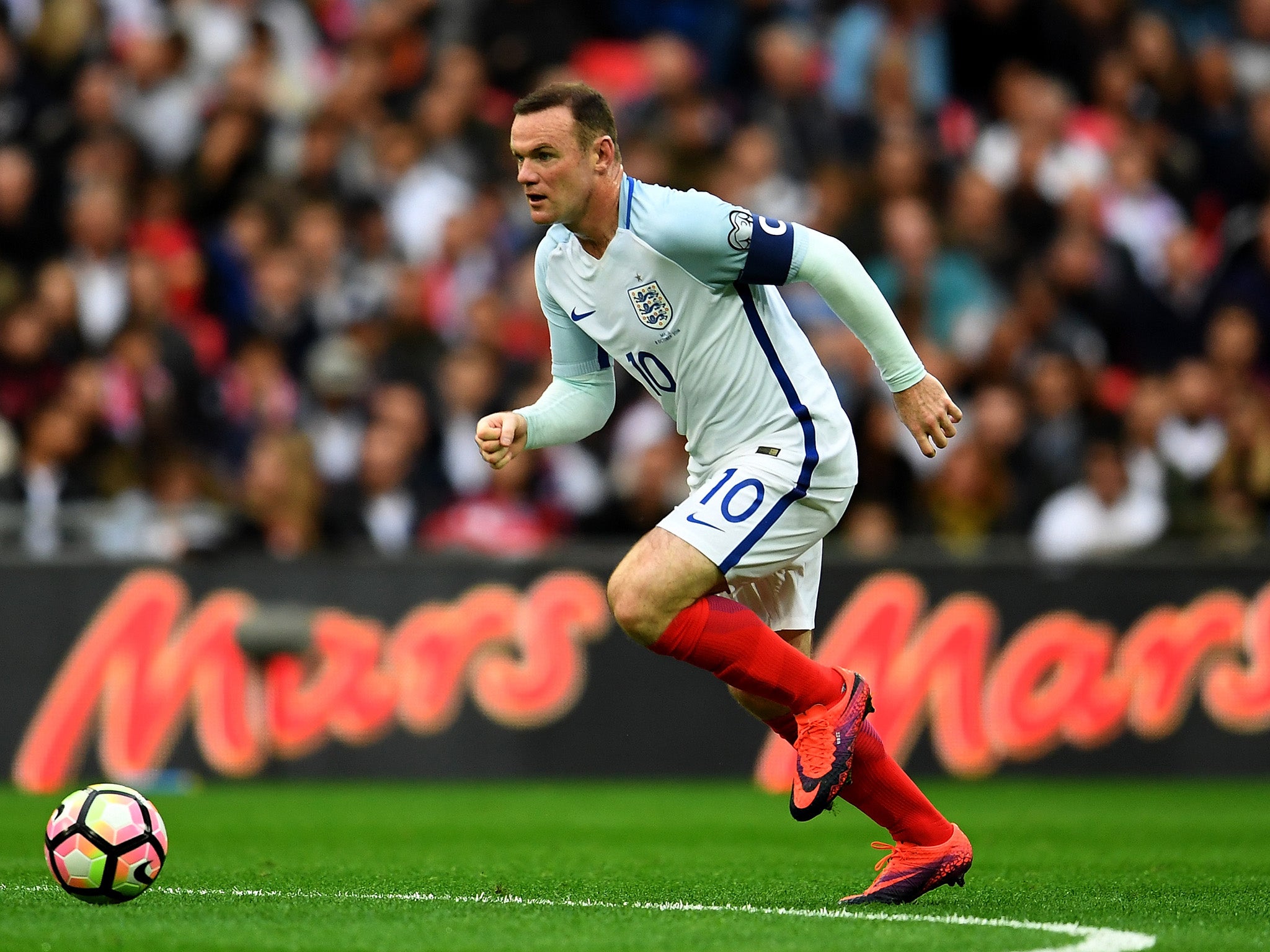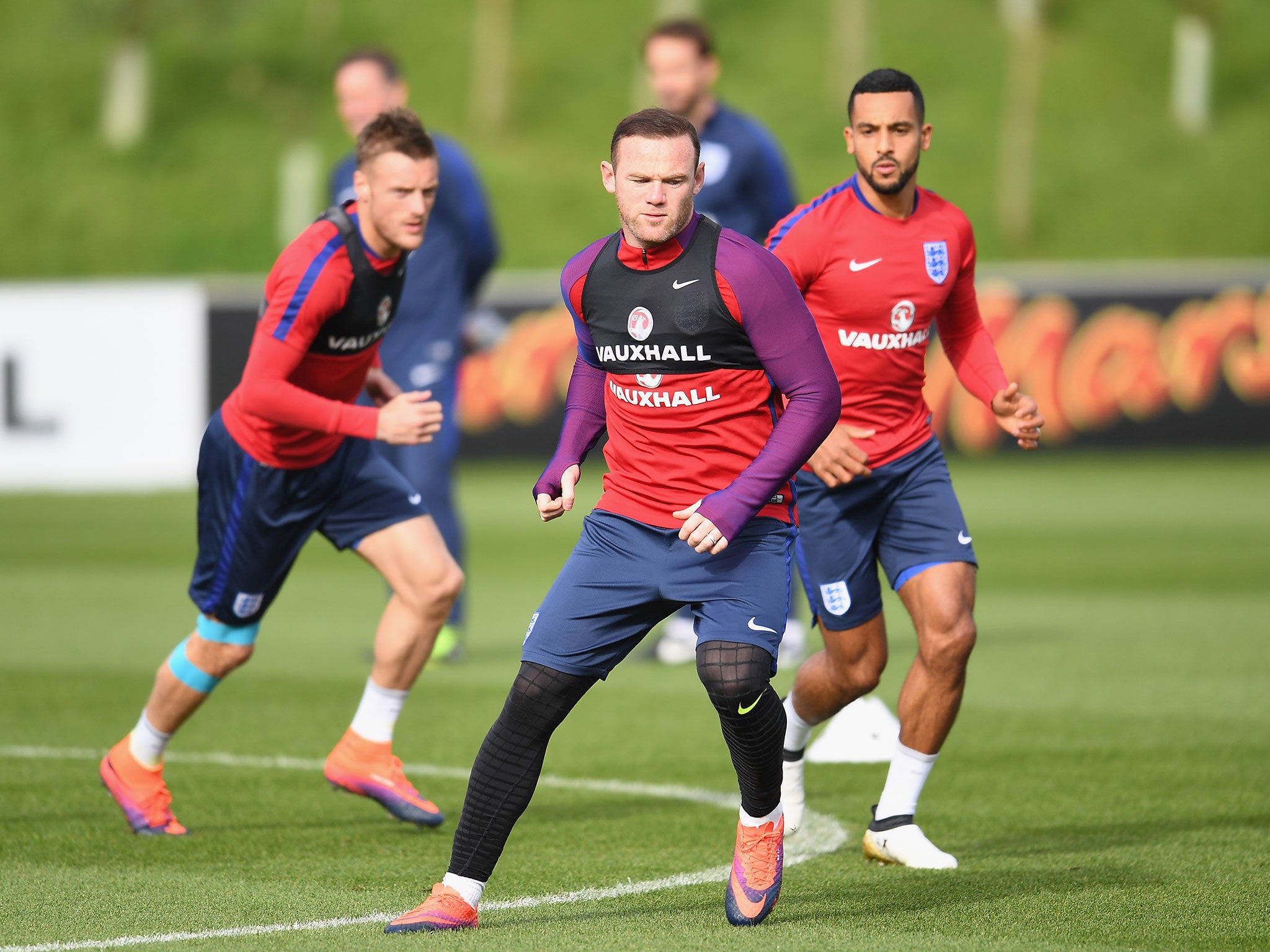Wayne Rooney: Gareth Southgate has acted boldly and overlooked his England captain - as needed to be done
Southgate promised that form, and not reputation, would determine how his sides line up. The manager has finally delivered on his words - and rightly so, writes Mark Ogden

Your support helps us to tell the story
From reproductive rights to climate change to Big Tech, The Independent is on the ground when the story is developing. Whether it's investigating the financials of Elon Musk's pro-Trump PAC or producing our latest documentary, 'The A Word', which shines a light on the American women fighting for reproductive rights, we know how important it is to parse out the facts from the messaging.
At such a critical moment in US history, we need reporters on the ground. Your donation allows us to keep sending journalists to speak to both sides of the story.
The Independent is trusted by Americans across the entire political spectrum. And unlike many other quality news outlets, we choose not to lock Americans out of our reporting and analysis with paywalls. We believe quality journalism should be available to everyone, paid for by those who can afford it.
Your support makes all the difference.When attempting to define his approach to managing England last week, Gareth Southgate quoted Theodore Roosevelt’s ‘Man in the Arena’ speech in an effort to emphasise that the ‘doer of deeds’ rather than the ‘critic’ would ultimately shape his decision-making.
It was a wordy quote, not the most pithy soundbite Southgate could have put forward, but having chosen to drop England captain Wayne Rooney for Tuesday’s World Cup qualifier against Slovenia in Ljubljana, another, more appropriate, utterance by the 26th President of the United States springs to mind – ‘Speak softly and carry a big stick.’
Southgate has stood firmly behind Rooney over the past week, defending him against criticism and the booing and jeering of the Wembley crowd during Saturday’s 2-0 victory over Malta. He has been measured in his words and assessment of the Manchester United captain, but faced with the reality of the 30-year-old’s diminishing contribution, the interim-manager has wielded the big stick.
Dispensing with a national institution is never easy, even when it is the patently the correct decision.
Not since Steve McClaren began his reign as England manager in 2006 by dropping David Beckham has such a big call been made by the man who picks the team, but Southgate has been bold.
McClaren was right to drop Beckham ten years ago, following the midfielder’s poor World Cup in Germany, but ‘Goldenballs’ fought back, proved the manager wrong and regained his place.
Whether Rooney is able to do the same will now be down solely to him, with Southgate having made it abundantly clear that form, rather than reputation, will be the only yardstick by which he judges the players at his disposal.
So is dropping Rooney the correct decision?

Five months ago, Roy Hodgson hosted a pre-Euro 2016 lunch with the football correspondents from each of the national newspaper in attendance asked to submit their starting XI for the tournament opener against Russia six weeks later.
Hodgson was surprised that more than half of his guests had omitted Rooney from their teams – my team including Danny Drinkwater ahead of Rooney in midfield and Harry Kane and Jamie Vardy in the forward positions – but he nonetheless stuck to his own thoughts by selecting his captain against the Russians – albeit in a deep-lying midfield role.
The point of recalling that story is to confirm that the Rooney debate has now been building a head of steam ever since injury forced him to miss the 3-2 victory over Germany in Berlin in March, in which Eric Dier and Dele Alli both produced outstanding performances as England fought back from 2-0 down in the Olympiastadion.
Hodgson’s successor, Sam Allardyce, chose to keep faith with Rooney and Southgate started him against Malta at the weekend, when the player moved to within eight appearances of equalling Peter Shilton’s England record of 125 caps, before deciding over the weekend that he could no longer justify his selection in the first eleven.
Rooney, dropped at club level by Jose Mourinho, has admitted he now prefers to perform in midfield where, he believes, he can ‘control the game.’
As such, he has closed off the route to a place in Southgate’s front line, instead targeting either the number ten role or a deeper position in front of the back four.
Even if he Rooney was in form, he would have to overcome pincer movement of Dier and Alli to claim one of those positions, but his 90 minutes against Malta betrayed a man bereft of confidence and one struggling to warrant his inclusion ahead of either of the young Tottenham midfielders.
Rooney’s problem, one identified by Mourinho and now Southgate, is that he has lost the dynamism of his younger days.
Heat-maps highlighting his failure to touch the ball in the opposing penalty area on Saturday miss the point – a holding midfielder is not expected to seek the ball in the 18-yard box.
The real shortcoming that has cost Rooney his place is his inability to move the ball forward, either with by running with it or passing it in an attacking direction.

Too often, Rooney will now move the ball sideways with ‘Hollywood’ passes or what some former players dismiss as ‘so-what balls.’
Ryan Giggs and Paul Scholes, the two former players Rooney cites as examples of attackers who evolved into deep-lying midfielders, performed in the final third, producing incisive passes in and around the opposition penalty area, until the end of their careers, but Rooney spends most of time 25 yards further back.
He occupies safe space, where he is neither a threat to the opposition or his own team – in the sense of losing possession in dangerous areas – so his value to Southgate is difficult to ascertain.
In contrast, Dier offers energy, tenacity, vision and height at set-pieces, while Alli’s threat in the final third has been displayed on numerous occasions for club and country.
Statistically, England’s goals have also dried up with Rooney playing deeper.
Just four goals in their last four games, against the collective might of Slovakia (twice), Iceland and Malta, is the sorry tale of woe in front of goal, with England scoring just 25 goals in 16 games – excluding six against the cannon fodder of San Marino – since Hodgson’s team triumphed 3-2 in Slovenia in June 2015.
During those last four games, when England’s cutting edge has been at its most blunt, Rooney has played in midfield, where his presence has arguably slowed down the team’s attacking impetus.
It is undoubtedly a sad moment for one of England’s most successful players – 53 goals in 117 appearances is a success, regardless of what Rooney’s detractors may say – when the curtain begins to fall.
But Southgate has perhaps simply just accepted what Sir Alex Ferguson came to realise in the final months of his reign as United manager three years ago.
Wayne Rooney is no longer the player he was and, until he finds a new role and succeeds in it, it is difficult to envisage a route back.
Join our commenting forum
Join thought-provoking conversations, follow other Independent readers and see their replies
Comments